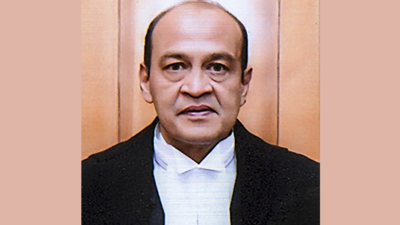HC lays down strict guidelines regulating sale, transfer of undivided joint family property of SC/ST equal shareholders | Bhubaneswar News

CUTTACK: In a significant ruling aimed at protecting the rights of Scheduled Caste (SC) and Scheduled Tribe (ST) communities, the Orissa high court has laid down stringent legal guidelines for regulating the sale and transfer of undivided joint family property by SC/ST coparceners (equal shareholders).Justice S K Panigrahi, in a recent judgment, held that no member of an SC/ST family can legally alienate a specific portion of joint property unless there has been a formal partition — either through a registered mutual agreement or a civil court decree. “In the absence of lawful partition, any proposed alienation must have the express, informed consent of all SC/ST coparceners,” the court said, adding that the onus lies on the transferor to prove such consent.The order further stipulates that when the buyer does not belong to an SC/ST community, the transfer will only be valid with prior permission from the competent revenue authority. Such permission can only be granted after verifying that the seller’s share is legally partitioned and demarcated, the transaction does not compromise the livelihood or shelter of any coparcener and the sale does not violate protective legal provisions.“No mutation in favour of the buyer shall be allowed unless the transferor produces proof of partition and/or written consent of other SC/ST coparceners,” the order issued on July 18 stated.The court clarified that any sale in contravention of these norms shall be deemed void— invalid from the outset — and not merely voidable. In such cases, authorities may suo motu initiate cancellation of the sale under the Orissa Land Reforms Act, 1960 or other applicable laws.The judgment was delivered in a case involving an undivided joint property — four acres and 40 decimals of land at Baniapat Khuntapada in Keonjhar district — with three brothers and three sisters from a Scheduled Caste family as legal heirs. The three sisters – Srimati Sethi, Saraswati Sethy and Malati Behera – moved the court after they were excluded from sale transactions executed by the brothers. The sold land was transferred to a person not belonging to the SC/ST community who later received compensation when the land was acquired for national highway expansion.In the judgment, Justice Panigrahi ruled, “All transactions and derivative rights, if any, emanating from the impugned sale deeds executed in relation to the land are held to be vitiated. Such transactions, having been made without partition, without consent of all coparceners and in violation of statutory protections applicable to members of the Scheduled Castes, shall be treated as invalid legally and shall not form the basis for any mutation, possession, or claim by any party, private or institutional.“





